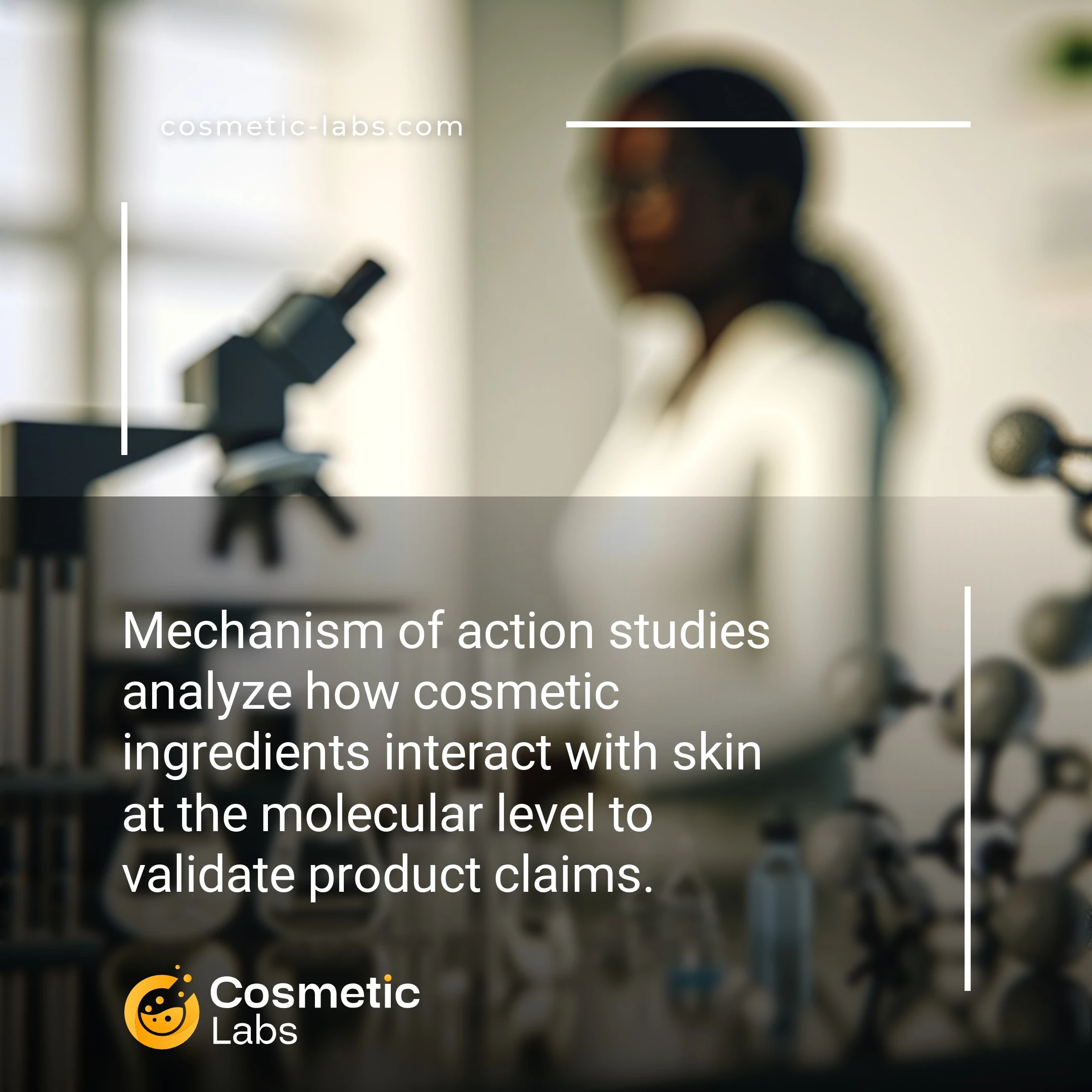Mechanism of Action Studies for Cosmetic Discovery Services

What is Mechanism of actions studies?
Hair care preclinical efficacy testing services validate your formulation’s performance claims through controlled laboratory studies before human trials. Labs conduct in-vitro assessments on hair fibers and follicles to measure strength, moisture retention, damage repair, and growth stimulation using standardized protocols. These studies generate the scientific data needed for regulatory submissions and marketing claims, helping you prove your product works while reducing development costs and time-to-market.
Why do you need this service?
Beauty brands use hair strengthening and damage repair validation to prove their shampoos and treatments actually work before launch. Labs measure tensile strength, breakage resistance, and cuticle integrity using specialized equipment, delivering concrete data that supports marketing claims and meets regulatory requirements for product registration.
Who provides Mechanism of actions studies services?
All cosmetic labs providing Mechanism of actions studies services
There is no company providing these services at the moment.
Hair Care Preclinical Efficacy Testing Services
Hair care preclinical efficacy testing validates your product’s performance claims before market launch. Labs on our platform use standardized protocols to measure hair strength, moisture retention, and damage repair across different hair types and conditions.
In-Vitro Hair Fiber Analysis
Labs test individual hair strands using tensile strength measurements and microscopic evaluation. These tests reveal how your formulation affects hair’s structural integrity and surface condition. Mechanical testing measures breakage resistance, while surface analysis shows cuticle smoothness and shine enhancement.
Common assessments include:
- Tensile strength testing at 20-80% humidity levels
- Protein loss quantification after chemical treatments
- Moisture content analysis using infrared spectroscopy
- Color retention studies for treated hair samples
Scalp and Hair Growth Studies
Specialized labs conduct follicle health assessments using ex-vivo scalp models and hair growth simulation chambers. These studies track hair cycle phases and measure growth rate changes over 28-90 day periods. Dermal penetration testing shows how active ingredients reach hair follicles.
Key measurements include:
- Hair diameter changes at 2, 4, and 8-week intervals
- Sebum production monitoring through lipid analysis
- Inflammatory marker detection in scalp tissue samples
- Antioxidant activity levels in hair shaft cross-sections
Connect with verified labs on our platform to discuss your specific hair care testing requirements and timeline.
3 subcategories of Mechanism of actions studies services
There are no results matching your search
Practical Applications of Hair Care Preclinical Efficacy Testing
Hair care preclinical efficacy testing applications provide brands with data-driven validation before launching products or making claims about performance.
Anti-Aging and Damage Repair Product Development
Labs use tensile strength testing and protein loss analysis to measure how treatments restore damaged hair structure. These tests reveal whether keratin-based formulations actually rebuild hair bonds or just create temporary cosmetic effects.
Thermal protection testing involves exposing treated hair samples to controlled heat (up to 200°C) and measuring structural integrity changes. Results show the temperature threshold where your formula stops protecting hair, giving you concrete data for marketing claims about heat styling protection.
| Test Type | Measurement | Timeline | Application |
|---|---|---|---|
| Tensile Strength | Force to break (grams) | 48-72 hours | Repair treatments |
| Protein Loss | Percentage reduction | 7-14 days | Strengthening formulas |
| Thermal Protection | Temperature threshold | 24-48 hours | Heat protectants |
| Moisture Retention | Water content percentage | 72 hours | Hydrating products |
Growth and Scalp Health Product Validation
Hair follicle viability testing uses dermal papilla cell cultures to measure how ingredients affect hair growth at the cellular level. Labs expose follicle cells to your active ingredients and track proliferation rates over 14-21 days.
Scalp irritation testing involves patch testing on reconstructed skin models to predict consumer reactions. This prevents costly reformulations after discovering your botanical extract causes sensitivity in 15% of users during human trials.
Ready to validate your hair care formulations with precise efficacy data? Connect with experienced cosmetic labs on our platform to discuss your specific testing requirements and timeline.
